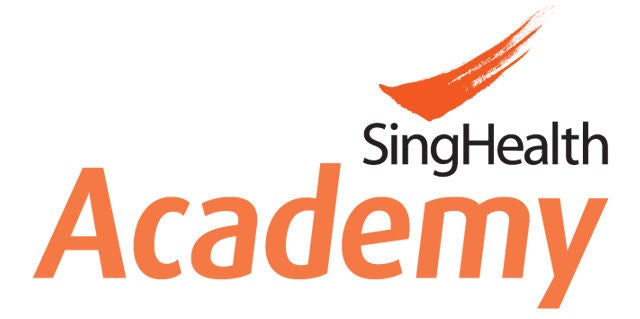SingHealth Academy will NEVER ask you to transfer money over a call. If in doubt, call the 24/7 ScamShield helpline at 1799, or visit the ScamShield website at www.scamshield.gov.sg.
Dr Fadzil Hamzah
About the Speaker

Dr Fadzil Hamzah
Senior Staff Registrar
Singapore Sport & Exercise Medicine Centre
Changi General Hospital, Singapore
Dr Fadzil graduated with a Bachelor of Medicine and Bachelor of Surgery from the National University of Singapore in 2005. He obtained his Masters in Sports Medicine at the University of Queensland, Australia in 2013. In 2018, SingHealth established the SingHealth Duke-NUS Sport & Exercise Medicine Centre (SDSC), which aims to provide integrated, multidisciplinary care that pushes the frontiers of clinical service, research and education in the field of Sport and Exercise Medicine (SEM) across all SingHealth institutions. Dr Fadzil has been appointed as the Community Director for SDSC.
Besides clinical work, Dr Fadzil is involved in clinical research as well as retrospective studies and audits on the weight management programme and Extra Corporeal Shockwave Therapy (ESWT) procedures offered at SSMC@CGH.
He has been actively involved in many community programmes and grassroots activities. He currently works closely with Sport Singapore’s ActiveSG team in the Active Health initiative by providing medical and exercise prescription expertise. Since the Ministry of Health declared ‘War on Diabetes’, he has been working closely with community partners and government organisations like Health Promotion Board (HPB), People’s Association (PA) and Community Development Council (CDC) to co-develop the Health Peers Programme, in which he leads a team of health professionals to train community volunteers in diabetes prevention and management. The Health Peers Programme was awarded the Prime Minister’s Community Initiative Award 2017 and has also earned Changi General Hospital the Community Partnership Excellence Award at the People’s Association Community Awards Ceremony 2018.
Dr Fadzil is a member of the Tampines Central Citizen’s Consultative Committee, focusing on both health and physical activity promotion in the community as well as outreach to the youths and minorities through sports and exercise. He also serves in M³, an alliance of 3 key Malay/Muslim organisations (MUIS, MENDAKI and MESRA/MAEC) created in 2018 to address the needs and the aspirations of the Malay/Muslim community as well as supporting citizen-centric and last-mile service delivery for the underserved and underprivileged in the community. Currently he is the healthcare committee lead for M³@Bedok and M³@Tampines. His passion in serving and engaging the community has also seen him being invited as both speaker and guest in many public health talks and community events, as well as being quoted in media resources.
Presentation Abstract
The COVID-19 crisis has fundamentally changed our lives. Many countries, including Singapore, have imposed lockdowns, increased social distancing, and implemented the use of face masks outside homes to reduce social contact to contain the pandemic. Access to the gyms, parks, community clubs and other public facilities used for social activities and recreation have been restricted. Group exercises and outdoor activities have also been discouraged. The elderly and those with chronic medical conditions, being very vulnerable to COVID-19, have also been advised not to leave their homes unnecessarily. In addition, schools and many jobs have transitioned to online platforms. All these are pertinent measures to tide us through the pandemic but they have also resulted in significant disruptions in everyday schedules for work, school, recreation, and social engagement routines.
This talk examines the impact of COVID-19 on physical activity engagement, and highlights the need to develop and evaluate interventions that take into account the social, cultural, physical and environmental factors in order to increase physical activity for chronic disease and COVID-19 prevention and management.
Stay Healthy With
© 2025 SingHealth Group. All Rights Reserved.
















